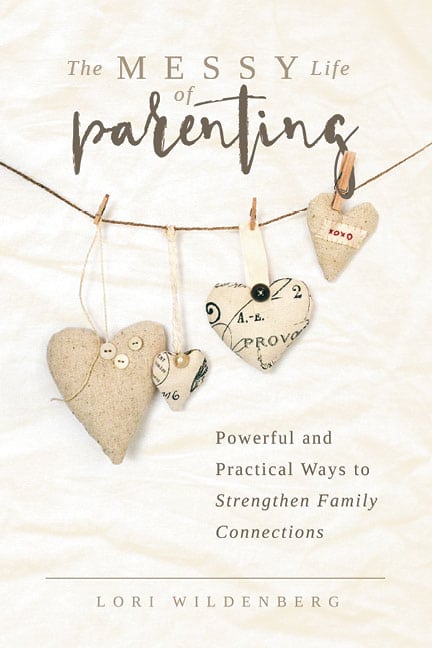Friends,
Meet J.D. Dudycha. He’s a former college ballplayer and retired college coach. This is the time of year when many parents are hoping their high-school athlete will have an opportunity to participate in college sports and are wondering how they can support their young person realize this goal. J.D. ‘s knowledge of how collegiate sports operate will give parents an insight into the best way to proceed and work within the system. If you have a high school athlete who has dreams of playing sports at the college level you will want to read this informative post. Have a Happy Thanksgiving. ~Lori
Advice About College Sports from a Retired College Coach by J.D. Dudycha
I’ve been asked a multitude of times, by friends, relatives, and even strangers, “How do college sports work?” and “What can be done to make my kid stand out?”
First a little background on how college sports work:
The National Collegiate Athletic Association (NCAA) is made up of three levels, division, I, II, and III. At the division I and II levels there are a certain amount of athletic scholarships that an institution is awarded based upon NCAA requirements. (Of course each institution is different and may have less scholarship money to offer based upon their own individual conditions.) There is a standard set by the NCAA that each individual sport will not exceed their regulations.
At the division III level there are no athletic scholarships available. However, there may be other options such as: academic scholarships, or grants.
The National Junior College Athletic Association (NJCAA) has three levels; division I, II, and III. Athletic scholarships,like the NCAA, are available only for the top two levels.
If you visit www.ncaa.com/schools or http://www.njcaa.org/ you will find a list of all the schools and their designated levels as recognized by the NCAA and NJCAA respectively.
What’s the difference between playing NJCAA vs. NCAA?
NJCAA Positives:
I can tell you from first-hand knowledge the junior college (JC) experience is much different than the NCAA experience. Most JC’s are set in small towns and instill an, “us against the world” mentality among teammates. The tight family bond made with teammates is hard to duplicate. The team is generally made up of all sorts of different races, and creeds. This provides an eye opening viewpoint into different cultural backgrounds.
Cost of tuition is generally cheaper, and there is no minimum requirement for high school GPA. However, some schools may have placement tests that a student will need to take before signing up for classes. The opportunity is there to receive your associate degree and get all general studies out of the way. There aren’t as many regulations when it comes to practice time, thus allowing your child to continue to develop the more they practice. Your child is also eligible to be drafted (baseball) after their freshman, and sophomore years, which is not the case with the NCAA. If your child does not get drafted into professional baseball, they have the opportunity to play at the NCAA level and still have two years of eligibility remaining.
NCAA Positives:
The biggest advantage of coming into a NCAA program as a freshman is having an opportunity to develop under the head coach’s tutelage from the beginning. Most coaches have different coaching philosophies, and starting out as a freshman will give your athlete that understanding from the beginning. The size of the schools can range from very small to very large depending where your child is most comfortable.
If your child knows exactly what he wants to study, he (or she) could take classes geared toward his specific major. Depending on the size of the school, he could develop many friends away from his sport. At the higher level programs (I or II) the facilities tend to be world class.
Look over the NCAA requirements. Certain GPA and test score requirements will apply.
How to get your athlete noticed.
I played baseball at the NJCAA division I level, and at the NCAA division II level. I coached at the NCAA division II, and III levels. With that experience, I discovered the best way for a player to gain notoriety is for him to market himself. If your child is interested in a school and the coach has yet to reach out, encourage him to call the head coach; not the assistant, not the recruiting coordinator, but the head coach. Have your child introduce himself (or herself), mention where he’s from, why he’s interested in this team, and what he can bring to the program. If your student has an athletic highlight DVD, send it as a follow up. The coach may refer your child to one of his assistants, but that’s okay. An impression has been made. Now your student is more than just a piece of unnoticed advertising paper that drifted across his desk.
I wish your son or daughter the best as he or she pursues the dream of playing the sport he (or she) loves at the college level.
I have fought the good fight, I have finished the race, I have kept the faith. Timothy 4:7(NIV)
Post Script from Lori: In order to find a school that is a good fit, information combined with prayer will assist you and your young person in this process. It is an exciting time filled with many mixed emotions.
J.D. Dudycha is a former college baseball player and coach. He has over ten years of experience in baseball at the collegiate level. After the birth of his son in 2012, J.D. retired from coaching to be a stay-at-home dad. Since his retirement, he developed a love for writing, an outlet he so desperately needed in the absence of baseball. Though his stories are fictional, he has drawn from his personal life as well as his expertise and knowledge of the game to craft his novels.
 J.D.’s novel Paint the Black is a realistic fictional story of an 18 year-old minor-league ball player who discovers actions have consequences but it is never too late to start over. This book of redemption is geared toward a young adult to adult audience. (Note: contains thematic elements of drugs, drinking, and sex. Not explicit but referenced.) Click here to head over to Amazon to find J.D.’s book.
J.D.’s novel Paint the Black is a realistic fictional story of an 18 year-old minor-league ball player who discovers actions have consequences but it is never too late to start over. This book of redemption is geared toward a young adult to adult audience. (Note: contains thematic elements of drugs, drinking, and sex. Not explicit but referenced.) Click here to head over to Amazon to find J.D.’s book. 





Thanks for the interview JD! I've wondered about sports and college learned aspects I didn't know before!
Amy, so glad you found JD's article helpful and informative! ~Lori
Amy, so glad you found JD's article helpful and informative! ~Lori
Amy,
No problem. I'm glad I could shed some light on a topic not many people know about. If you have any questions, feel free to let me know.
J.D. Dudycha
http://www.jddudycha.com